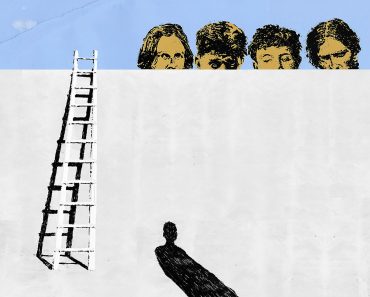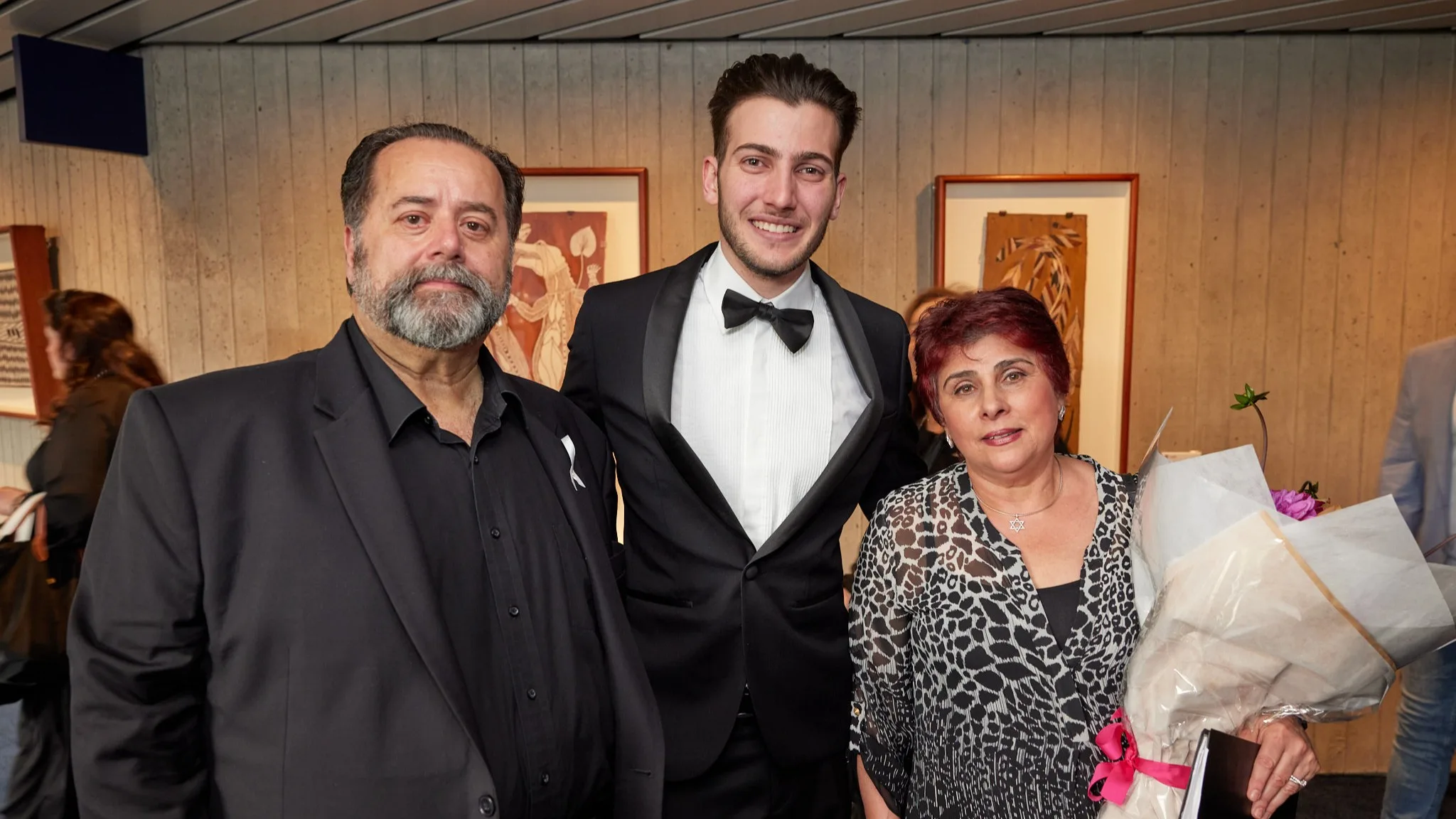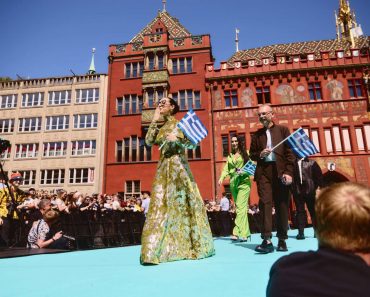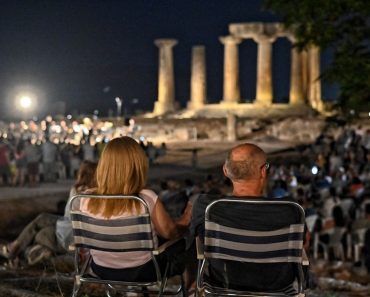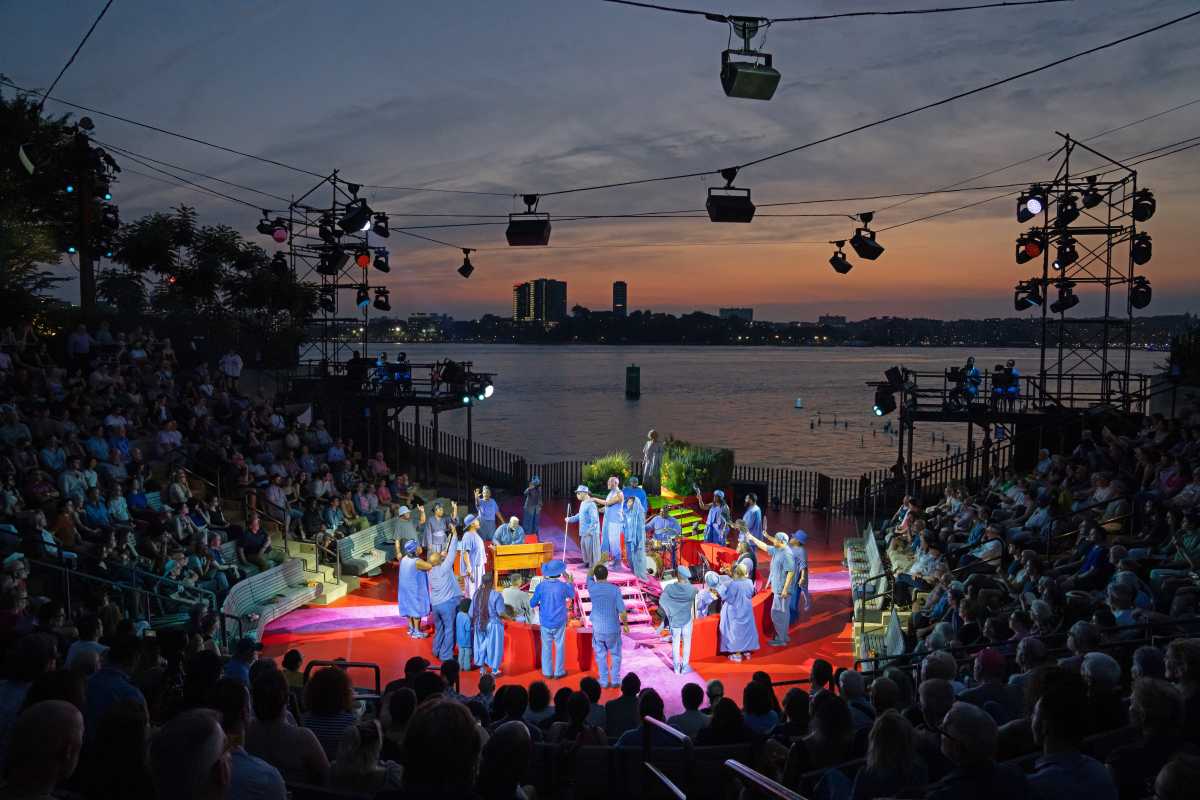
The cast of “The Gospel at Colonus.”
Photo: Julieta Cervantes
The 700-seat amphitheater at Little Island, the public park floating above the Hudson River near the Meatpacking District, is currently hosting its most ambitious theatrical event to date: a revival of “The Gospel at Colonus,” a 1983 musical oratorio that reimagines Sophocles’ ancient tragedy “Oedipus at Colonus” as a Black Pentecostal church service. With river breezes, wildflowers, and the setting sun as its natural backdrop, the production unfolds like a midsummer night’s communal gathering.
Conceived by avant-garde theater artist Lee Breuer (of Mabou Mines), with music by Bob Telson, it is a genre-defying piece that combines Greek tragedy, gospel and jazz, and religious testimony. Many theater fans have encountered it through a PBS film recording of the original production, which is now easily accessible on YouTube and features Morgan Freeman as the Messenger.
The show’s most iconic song, “How Shall I See You Through My Tears?,” is also recognizable to Millennial theater geeks. It opens the 2003 cult musical film “Camp,” where it’s performed by a group of outsider teens reunited at a summer theater camp. That’s how I first encountered the song. In “The Gospel at Colonus,” it’s sung by a daughter of Oedipus as she reconnects with her father and sister. In both settings, the song marks a reunion steeped in grief and survival.
In 2018, the show received a revival at the Delacorte Theater that featured members of the original cast. The Little Island production, directed by Shayok Misha Chowdhury, marks the first New York revival to reimagine the work.
The amphitheater setting is ideal for a piece that blurs the lines between ritual and performance. The show also feels newly urgent, both because of the rising interest in environmental and site-specific theater, and due to its deeply resonant central figure: a long-suffering wanderer, cast out of his homeland and seeking asylum in another country.
The Messenger, played with warmth and authority by Stephanie Berry, welcomes the audience as a congregation. “I take as my text this evening the Book of Oedipus,” she proclaims. From there, the story unfolds in a stylized and musical fashion, focused less on plot mechanics than on emotion and spiritual transformation.
The production doesn’t always sustain its momentum. At times, the pacing sags and the storytelling becomes hard to follow. But what the piece lacks in narrative clarity, it compensates for in its music and atmosphere.
Visually, the production finds beauty in simplicity. The circular stage echoes both an ancient Greek theater and a church pulpit, with musicians at its center.
Oedipus, originally portrayed by the Blind Boys of Alabama, is here voiced by three performers, namely the legally blind jazz singer Frank Senior, the operatic bass-baritone Davóne Tines, and Berry, who occasionally come together to form a single presence.
Gospel singer Kim Burrell plays Theseus, a traditionally male role, and delivers one of the evening’s musical high points with a roof-raising solo in the show’s final section.
A standout element of this revival is the choir, which is multi-generational, exuberant, and fully integrated into the production’s architecture. Members of James Hall’s Worship & Praise choir (based in Flatbush) sit not behind or apart from the action, but in the front row, wrapping around the stage like a living extension of the congregation. At key moments, they rise, sing from the aisles, and flood the space with layered harmonies, embodying the communal spirit of both ancient Greek chorus and gospel revival.
The Amph at Little Island, littleisland.org. Through July 26.


